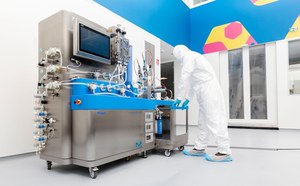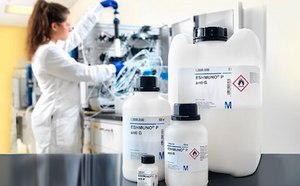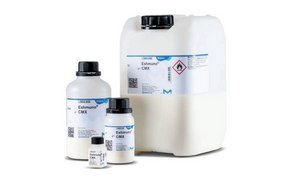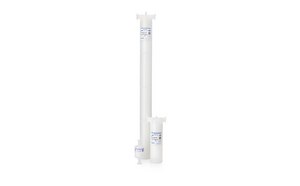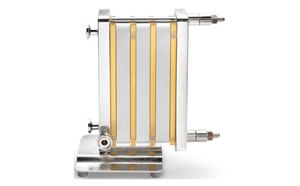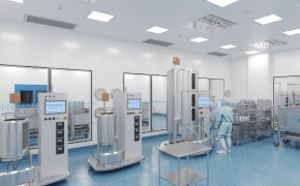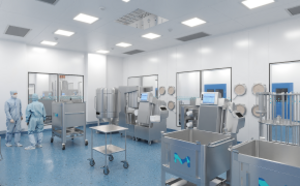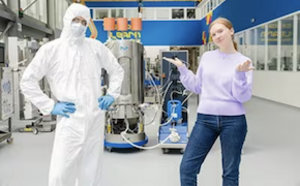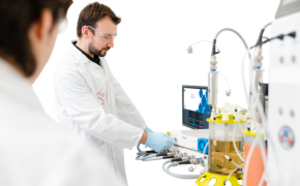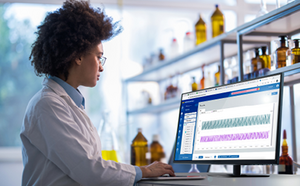Looking to increase your downstream process efficiency?
Transformation of the biomanufacturing workflow is being accelerated by the demand for new therapeutics combined with the need to reduce costs while ensuring operational flexibility and productivity.
Process intensification, closed, and continuous bioprocessing are foundational strategies for achieving these goals. They are widely and successfully deployed in the downstream suite to be more efficient, faster, smaller, less expensive, and sustainable.
To help biopharmaceutical manufacturers intensify, closing, digitally-enhance, or go fully continuous with their processes and gain new levels of operational efficiency and flexibility, there are multiple levers within the DSP suite.
Capture Chromatography
The capture chromatography step is not only a significant contributor to costs, but it can be a bottleneck in the overall DSP (downstream processing) workflow. This downstream purification step can be optimized using continuous multi-column chromatography which considerably reduces the volume and associated cost of Protein A resin required while increasing productivity of the mAb process.
Protein A resins with high binding capacity, superior flow capability, reusability, and a low cost of goods are also essential for process intensification.
- Mobius® Multi Column Capture System, a fully automated, single-use 3-column system for continuous closed capture chromatography of your fed-batch or perfusion bioprocess.
- Eshmuno® A Resin, a rigid, high-capacity Protein A affinity chromatography resin that can be cleaned and sanitized under acid and alkaline conditions while maintaining high dynamic binding capacity at high flow rates.
Related Categories
Single-use and multi-use chromatography systems are critical for the separation of your valuable molecules.
Affinity chromatography is often used during the capture phase to isolate the target molecule and reduce process volume.
Ion exchange (IEX) chromatography separates biomolecules based on difference in charge between the target molecule and chromatography resin.
Optimize downstream purification using membrane chromatography for capture and polishing. Natrix membranes boost economics and facility efficiency.
Elevate Filtration Precision: Our tangential flow products ensure purity for mAbs, vaccines, and more, scaling from single-use to multi-use.
Related Resources
- Article: What is Multi Column Chromatography?
In this article, we will discuss one of the methods used to intensify the capture chromatography process: multi column chromatography (MCC).
- Data Sheet: Mobius® Multi Column Capture System
The Mobius® Multi Column Capture system is designed as a fully automated, single-use solution to operate continuous closed capture chromatography.
- Application Note: Efficient Protein A Capture in Intensified Processes: Process Characterization and Scalability
Assess the efficiency of continuous mAb capture from a clarified and filtered harvest cell culture fluid (HCCF), using the Mobius® Multi Column Capture system and evaluate process scalability.
- Application Note: Multi-Column Chromatography for Efficient Polishing Purification
The studies in this application note focus on Ion Exchange (IEX) chromatography in bind/elute mode using the Mobius® Multi Column Capture system.
- Application Note: Multi Column Capture
Results from the multi-column capture (MCC) system implementation as part of a fully integrated downstream continuous manufacturing platform are reported here.
- Application Note: Intensified Polishing Using Single-Pass Tangential Flow Filtration (SPTFF) with Anion Exchange Chromatography
In this app note, SPTFF preconcentration is used to intensify the anion exchange (AEX) polishing step in monoclonal antibody (mAb) processing for improved impurity removal and column productivity.
- Application Note: Implementation of Multi-Column Chromatography Systems
The Multi-Column Capture (MCC) System enables efficient primary capture through three column operation, supporting continuous feedstream processing.
Related Webinars
Improve your process efficiency and reduce costs.
Related Videos
BioContinuum™ Platform: Your enabler of the biomanufacturing facility of the future!
To continue reading please sign in or create an account.
Don't Have An Account?